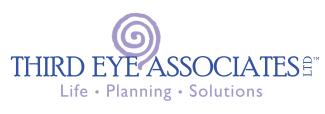Top 10 Beneficiary Designation Mistakes
January 2, 2015
By Beth Jones, RLP®, AIF®, CFT™
The beneficiary designations on financial accounts are crucial decisions that will impact the success of a financial or estate plan. Here are 10 common mistakes that you should discuss with your professional advisor to be sure your designations are correct for your personal situation.
Mistake No. 1: Naming the Estate as Beneficiary of Life Insurance Policy
This creates a number of serious problems. First, proceeds are now subject to probate or intestate administration, which takes time to complete, delaying access and use of the proceeds by surviving family members. Second, the proceeds are now subject to estate taxes regardless of how policy ownership was structured. Third, creditor protection over the life insurance proceeds under state law may be lost. Fourth, distribution of the insurance proceeds is now subject to the terms of the decedent’s will or intestacy proceedings, which may not result in what the decedent intended. Generally, naming an individual, for a personally-owned policy, or the trust, for a trust-owned policy, is the appropriate method.
Mistake No. 2: Not Naming a Contingent Beneficiary
Every financial product that allows for a beneficiary designation should have primary and secondary (contingent) beneficiaries. This helps to ensure that the asset goes to whom the decedent intends, even if the primary beneficiary predeceases. Otherwise, intentions may be defeated because the asset without a contingent beneficiary will be included in the estate, requiring probate or intestate administration, resulting in a delay in access and unnecessary legal and administrative fees.
Mistake No. 3: Naming a Minor Child as Beneficiary to Life Insurance Policy
Insurance carriers won’t pay benefits to a minor. Designating a minor as the beneficiary may lead to court proceedings to designate a custodian, conservator or trustee to receive the proceeds for the minor’s benefit. That delays access and use of the proceeds and causes unnecessary legal and administrative expenses. If the minor is intended to be the beneficiary, then a trust, or at the very least an account subject to that state’s Uniform Transfers to Minors Act, should be named as beneficiary. You will want to name the trustee or guardian per your wishes vs. a court assignment.
Mistake No. 4: Failure to Remove Ex-Spouse as Beneficiary
Too often, I see ex-spouses still listed as beneficiaries of life insurance, individual retirement accounts, qualified plans and other financial accounts, even though that clearly wasn’t the intent. A divorce may not automatically remove the ex-spouse as a beneficiary, depending on the product type (especially qualified retirement plans) and the laws in the state of residence. Make sure you change beneficiary designations immediately upon a divorce.
Mistake No. 5: Failure to Regularly Review Beneficiary Designations
Often, I see people who’ve already predeceased the policy or account owner, or family members who’ve been estranged or otherwise provided for, still named as beneficiaries. This situation may result in assets going to unintended beneficiaries, delays in access and unnecessary legal and administrative expenses. Make sure you review beneficiary designations regularly and certainly after a significant life event.
Mistake No. 6: Violating the 3-Party Rule on Life Insurance Policy
When you have the owner, insured and beneficiary of a life insurance policy as three different individuals, there may be adverse gift tax consequences. The owner is deemed to have made a taxable gift to the beneficiary. Even though there’s a $5.43 million federal gift tax exemption in 2015, this can be an issue for high-net-worth individuals (HNW) or those who live in states that have a separate estate and gift tax systems. With life insurance, there should never be more than two parties to an insurance contract.
Mistake No. 7: Failure to Account for “Special Needs” Children
Increasingly, well-intentioned family members designate others, who may have special needs, as beneficiaries of life insurance or other financial products or as heirs of an estate plan. These good intentions may disqualify the special needs child from various benefits and governmental assistance; careful attention to the details matter. The proper course is to integrate with the child’s parents’ planning and possibly use the assets to fund a special needs trust.
Mistake No. 8: Naming Individual as Beneficiary of Business-Owned Policy
Businesses often purchase life insurance on the life of owners or key employees. These business-owned policies are used to fund business continuation arrangements or executive benefits. Unfortunately, for reasons typically related to good will, expediency, cost savings or ignorance of the law, family members of the insured are named as beneficiaries. Unfortunately, instead of receiving the insurance proceeds income tax-free, the proceeds may be considered taxable income to the beneficiary either as ordinary income or as a dividend. For business owners, the situation may also result in what’s known as a “transfer-for-value,” which may make the insurance proceeds taxable. The beneficiary of a business-owned policy should always be the business.
Mistake No. 9: Improperly Drafted Trusts Named as Beneficiaries of Retirement Accounts
Naming an individual as beneficiary of an IRA or qualified retirement plan may allow for the continued tax-deferred growth of the asset (Stretch IRA) over the beneficiary’s life expectancy. Many HNW individuals would rather leave their retirement assets to a trust, to manage and protect the assets, than distribute the assets directly to a beneficiary. However, the rules are detailed and complicated. Failure to comply may result in the loss of that stretch.
Mistake No. 10: Failure to Coordinate All Beneficiary Designations with Overall Estate Plan
This is one of the biggest mistakes that people make. They forget that the beneficiary designation automatically controls who gets the asset. The designation supersedes the Will. This may result in unintended consequences, such as adverse tax consequences, failure to distribute the estate as intended, or worse, inadvertently leaving out a family member from an inheritance.
Article was adapted from original article published by Victor Ngai | Trusts & Estates December 22, 2014
Third Eye Associates, Ltd disclaimer
This article is provided for general informational purposes only and should not be construed as legal advice. Always consult an attorney who specializes in estate planning to make sure you have the correct documents and beneficiary designations for your personal situation.
Beth Jones, RLP®, AIF®, CFT™ is a Certified Financial Transitionist™, Registered Life Planner, and
Financial Consultant with Third Eye Associates, Ltd, a Registered Investment Adviser located at 38 Spring Lake Road in Red Hook, NY. She can be reached at 845-752-2216 or www.thirdeyeassociates.com.

